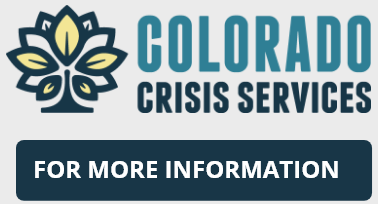A Comprehensive Solution-Based Approach

May is a month dedicated to both mental health awareness and maternal mental health awareness. Having a month dedicated to maternal mental health awareness provides an opportunity for individuals, communities, healthcare professionals and activists to engage in targeted conversation about the importance of maternal mental health and the urgent need to help perinatal and postpartum individuals experiencing behavioral health challenges. Maternal mortality rates are on the rise in the United States. The maternal mortality rate in the United States has increased by 12.8% from 2019 to 2021. [1] Both suicide and homicide are considered leading causes of death both during pregnancy and the postpartum period. [2]
In Colorado, the leading cause of death for maternal mortality is individuals dying by suicide and or unintentional overdose during pregnancy and the first year after giving birth.[3] Without necessary support and intervention, maternal mental health issues can lead to detrimental long-term outcomes such as impairing parent-infant bonding and limiting a child’s emotional development and ability to learn. As maternal mortality rates are rising, it is dire to address maternal mental health.
Centennial’s Maternal Mental Health Program
Centennial’s Maternal Mental Health Program was developed to address the expressed needs of our rural communities. . The program is dedicated to supporting the mental well-being of perinatal and postpartum individuals, their families and their care teams throughout Northeastern Colorado. Through a comprehensive, solution-based approach, Centennial combines medical expertise, maternal mental health consultation, therapeutic expertise, community engagements and targeted strategies to create an equitable continuum of care for those in need of maternal mental health services.
The Maternal Mental Health Program offers consultation services, which provide outreach to partner agencies and assist families experiencing perinatal and postpartum anxiety, depression and other mood disorders by connecting them to relevant resources that they need in order to feel supported and cared for. The Maternal Mental Health Consultant partners with local hospitals, OB Clinics, Baby Bear Hugs, Nurse-Family Partnership and Early Childhood Councils to provide outreach and cross-system services. The integration with existing community services allows the opportunity for perinatal individuals to receive mental health care and referrals for their specific needs. The program’s seamless referral pathway ensures that individuals receive a timely and coordinated transition from both external and internal services.
The program's clinician provides screening, individual and group therapeutic treatment services to help ensure optimal health outcomes. The screenings effectively identify mental health challenges through the use of evidence-based tools. They allow issues to be identified early and for individuals to receive the proper support, which can lead to better outcomes and improved well-being.
When an individual experiences maternal mental health challenges, it can be overwhelming knowing where to start to seek out information and support, especially with the influx of information on the internet. To ensure that individuals and families receive reliable information and resources, the team developed a mental health support bag, which is given to clients and partner agencies. The maternal mental health support bags include self-care items, baby items a “Mindful MOMents” journal and educational resources.
The “Mindful MOMents” journal was created by the program's consultant and team to help individuals in the perinatal period understand mental health symptoms and provide them with tools and resources. Journaling is known to help improve mental health and overall well-being, as well as help navigate complex feelings. The “Mindful MOMents” journal includes:
- Letters to the mom and their partner
- Cards that can be cut out to give to family and friends that indicate they are experiencing postpartum symptoms but are not ready to talk about it yet
- A self-care plan
- Journal prompts
- An activities section with coloring pages, a word search, maze and calendar
- Feeling faces to help track patterns of their feelings and can be taken to their physician, counselor, or psychiatrist
- A contact section
- A directory of resources within Centennial's 10 counties, state, national and international levels
Centennial is committed to improving and promoting the mental well-being of perinatal and postpartum individuals, infants and families by providing specialty support that is culturally and linguistically competent. To learn more about the Center’s Maternal Mental Health please call your local Centennial office.
[1] Katella, “Maternal Mortality IS on the Rise: 8 Things to Know.” Yale Medicine, 2023, https://www.yalemedicine.org/news/maternal-mortality-on-the-rise
[2] Katella, “Maternal Mortality IS on the Rise: 8 Things to Know.” Yale Medicine, 2023, https://www.yalemedicine.org/news/maternal-mortality-on-the-rise
[3] Okoloko, “Preventing Maternal Mortality Requires Attention to Mental Health – and the Factors That Lead to Disparities.” Colorado Health Institute, November 8, 2021, https://www.coloradohealthinstitute.org/blog/preventing-maternal-mortality-requires-attention-mental-health-and-factors-lead-disparities






